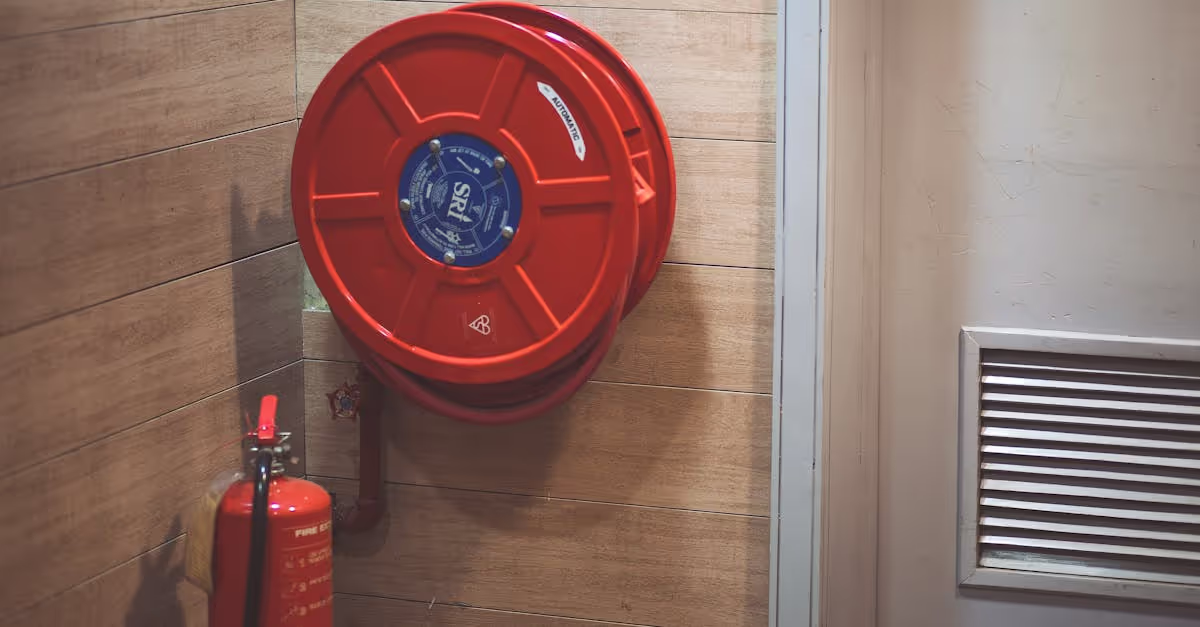Key Takeaways
- Understanding Risks: Electrical failures in pools can lead to serious hazards such as electrocution, emphasizing the need for awareness and preparedness.
- Immediate Safety Actions: Turning off power, avoiding water entry, and using GFCI protection are crucial steps to take when an electrical issue is suspected.
- Routine Inspections: Regular inspections of electrical systems and equipment help identify potential problems early, preventing major safety risks.
- Professional vs. DIY Repairs: Hiring a licensed electrician ensures compliance with safety standards, while DIY repairs should only be attempted by those familiar with electrical systems.
- Upgrading Equipment: Investing in newer, energy-efficient electrical systems can significantly improve safety and reduce the likelihood of failures.
- Utilizing Technology: Service business and field management software streamline scheduling and maintenance, enhancing pool safety management.
When it comes to pool safety, electrical failures can pose serious risks. Did you know that nearly 100 people in the U.S. die from electrocutions related to swimming pools each year? That staggering statistic highlights the importance of understanding how to respond effectively to electrical issues in our pools.
In this guide, we’ll walk through essential safety measures and repair options to ensure we keep our swimming environments safe and enjoyable. Whether it’s identifying the signs of electrical failure or knowing how to react in an emergency, being prepared can make all the difference. Let’s dive into the steps we can take to protect ourselves and our loved ones from potential hazards.
Understanding Electrical Failures in Pools
Electrical failures in pools pose serious safety risks. Grasping the causes and impacts of these failures helps us protect both ourselves and our loved ones.
Common Causes of Electrical Failures
Electrical failures often arise from outdated equipment, improper installation, or wear and tear on electrical systems. Corrosion from water exposure can damage wiring and connections, creating hazards. Faulty light fixtures frequently contribute to electrical issues as well. Even pool pumps, if not installed or serviced correctly, can lead to shorts and erratic behavior. Regularly checking these components reduces the risk of unexpected failures.
Finances might come to mind as we consider addressing these common causes. Service business software aids in monitoring and managing maintenance schedules, ensuring we catch potential issues before they escalate. Using technician management tools allows for quick responses to repairs, keeping us safe and our pools functional.
Impact on Pool Safety
Electrical failures can have dire consequences. Dangers include electrocution and injury, which affect not just the swimmers but anyone near the pool area. Studies indicate that electrical hazards cause almost 100 deaths annually in the U.S. Addressing these failures promptly maintains a safe environment for families and friends.
Utilizing mobile workforce management solutions helps us respond quicker to electrical issues. These tools streamline communication and scheduling for repair technicians, ensuring the pool remains a safe retreat. Having reliable access to service businesses guarantees we stay ahead of problems, making pool safety a shared responsibility.
Engaging in regular safety inspections and using available technological resources strengthens our commitment to a safe swimming experience. What steps do we take to contribute to pool safety? Are we relying on the right tools and information to keep our aquatic spaces secure?
Safety Measures to Implement
Responding swiftly to electrical failures in pools can prevent serious accidents. We’ll break down immediate actions and long-term precautions to keep everyone safe.
Immediate Actions to Take
- Turn Off Power: Let's act fast. We must turn off power to the pool area if we notice any electrical issues or if someone appears to be in distress in the water. This step prevents further hazards.
- Avoid Water Entry: Rescue is important, but we shouldn’t jump in. Instead, we can use a non-conductive object, like a carbon fiber rod, to reach someone who needs help.
- Use GFCI Protection: GFCI-protected outlets play a crucial role. The National Electric Code suggests having at least one GFCI outlet placed between 6 and 20 feet from the pool’s edge. This helps minimize risks from electrical malfunctions.
- Keep Electrical Devices Away: We should maintain a safe distance from the pool when it comes to electrical devices like radios or chargers. Wet areas and electricity don’t mix well.
Long-term Safety Precautions
- Regular Inspections: Scheduling routine inspections helps us identify potential issues before they become major problems. Using service business software can help us manage these schedules effectively.
- Upgrade Equipment: Older equipment tends to fail more often. Investing in updated systems minimizes risks and enhances safety. Automated field service solutions can streamline the upgrade process.
- Educate and Train: Training ourselves and others on pool safety and accident response keeps everyone prepared. Knowledge empowers us to act quickly.
- Maintain Distance: Keeping extension cords and other electrical devices far from the pool deck helps prevent hazards. We can improve safety by using technician management software for tracking devices and their locations.
Let's stay safe and promote a well-maintained, secure swimming environment. When was the last time you checked your GFCI outlets?
Repair Options for Electrical Failures
When electrical failures occur in pools, quick and effective repair options are crucial for safety. We can choose between professional services or consider DIY approaches, depending on our skills and the severity of the issue.
Professional Repair Services
Hiring a licensed electrician offers peace of mind. Professionals bring expertise and knowledge about pool electrical systems. They can identify issues like faulty connections or deteriorating equipment faster than the average homeowner. Engaging a professional also guarantees compliance with local codes, reducing risks associated with pool operations.
For example, if we notice signs of electrical malfunction, such as flickering lights or unusual noises, contacting a professional becomes essential. Let's not forget the benefits of deploying mobile workforce management tools. These platforms facilitate efficient scheduling and communication, ensuring our repairs happen promptly.
Consider investing in field service management software. This technology assists repair services in optimizing routes and managing technician schedules. As a community, we can improve responsiveness to electrical failures while ensuring our pools remain safe and enjoyable for everyone.
DIY Repair Considerations
Taking on repairs ourselves can be rewarding, but safety comes first. Before tackling any electrical issue, we must power down the affected area. Understanding basic electrical concepts is beneficial. We can start with simple tasks, like replacing light fixtures or checking circuit breakers.
Remember to keep safety gear handy. Working near water requires extra caution to prevent shocks. If the task becomes overwhelming, or if we encounter complex wiring, let’s not hesitate to call in a professional. We certainly don’t want to turn a minor issue into an electrical saga.
Incorporating service business software can streamline our DIY efforts. Scheduling reminders for regular maintenance helps us stay ahead of potential problems. After all, preventative action speaks volumes in maintaining a safe swimming environment. Wouldn’t it be great if we could say goodbye to electrical woes?
Preventative Maintenance for Pool Electrical Systems
Regular maintenance of pool electrical systems plays a crucial role in ensuring safety. Prevention helps us avoid the headaches of electrical failures and creates a more enjoyable swimming environment.
Regular Inspections
Regular inspections act like a routine check-up for our pool's electrical system. Without these, small issues can snowball into major problems. Scheduling quarterly inspections can help us catch corrosion, loose wires, or outdated equipment. These inspections should include checking GFCI outlets and verifying proper grounding. Additionally, using field service management software can simplify scheduling for our technicians, ensuring we don't overlook any vital checks. By keeping up with regular inspections, we promote safety and longevity for everyone using the pool.
Upgrading Electrical Systems
Upgrading electrical systems is vital for long-term safety and efficiency. Equipment and technology evolve, and so do the safety standards. Swapping out old pumps for energy-efficient models reduces electricity costs while enhancing safety. Moreover, new technologies like automated field service solutions can streamline repairs and maintenance. Implementing service business software allows us to manage installations effectively and track service histories. An upgrade not only protects our swimmers but also reduces the risk of unexpected failures. Do we want to stick with outdated gear when safer, more efficient options exist? Investing in modern electrical systems pays dividends in peace of mind and safety.
Conclusion
Addressing electrical failures in our pools is essential for ensuring safety and enjoyment. By understanding the risks and implementing proactive measures we can significantly reduce the chances of accidents. Regular inspections and maintenance keep our electrical systems in check while enhancing overall pool safety.
Utilizing technology like mobile workforce management tools streamlines our repair processes and helps us stay organized. Whether we choose to tackle repairs ourselves or call in professionals it's crucial to prioritize safety and compliance with local codes.
Let’s commit to making our swimming environments safer for everyone by staying informed and prepared to respond effectively to any electrical issues that arise. Together we can create a secure oasis for relaxation and fun.
Frequently Asked Questions
What are the dangers of electrical failures in pools?
Electrical failures in pools can lead to severe injuries or even fatalities, with nearly 100 electrocution deaths reported in the U.S. each year. Corroded wires, faulty lighting, and improperly installed equipment can create hazardous conditions for swimmers and bystanders.
How can I identify electrical issues in my pool?
Look for signs such as flickering lights, unusual noises from equipment, and rust or corrosion around electrical components. If you notice any of these indicators, it’s essential to investigate further or contact a professional for assistance.
What should I do in case of an electrical failure in my pool?
Immediately turn off the power to the pool area and avoid entering the water. Ensure that all swimmers are safely out of the pool and await help from a qualified electrician to resolve the issue.
How often should I inspect my pool's electrical systems?
Regular inspections, ideally every three months, are crucial. Check for signs of corrosion, loose wires, and outdated equipment. Schedule these inspections to prevent small issues from escalating into major hazards.
Is it safe to perform DIY electrical repairs on my pool?
DIY repairs can be attempted only if you have the necessary skills. Always turn off power, use safety gear, and ensure you understand the risks involved. However, hiring a licensed electrician is recommended for complex or serious issues.
What preventative measures can I take for pool electrical safety?
Implementing regular inspections, upgrading old equipment, training individuals on pool safety, and using GFCI protection are key. Maintaining a safe distance from electrical devices also helps prevent electrical accidents around the pool.
How can service business software assist with pool maintenance?
Service business software can streamline scheduling for regular inspections and facilitate efficient communication between pool owners and repair technicians. This helps ensure timely maintenance and quick responses to any issues that arise.
When is it time to upgrade my pool’s electrical system?
Consider upgrading your pool’s electrical system if you notice frequent issues with equipment, if it's outdated, or after any significant renovations. Energy-efficient models and modern technologies can improve safety and efficiency.






